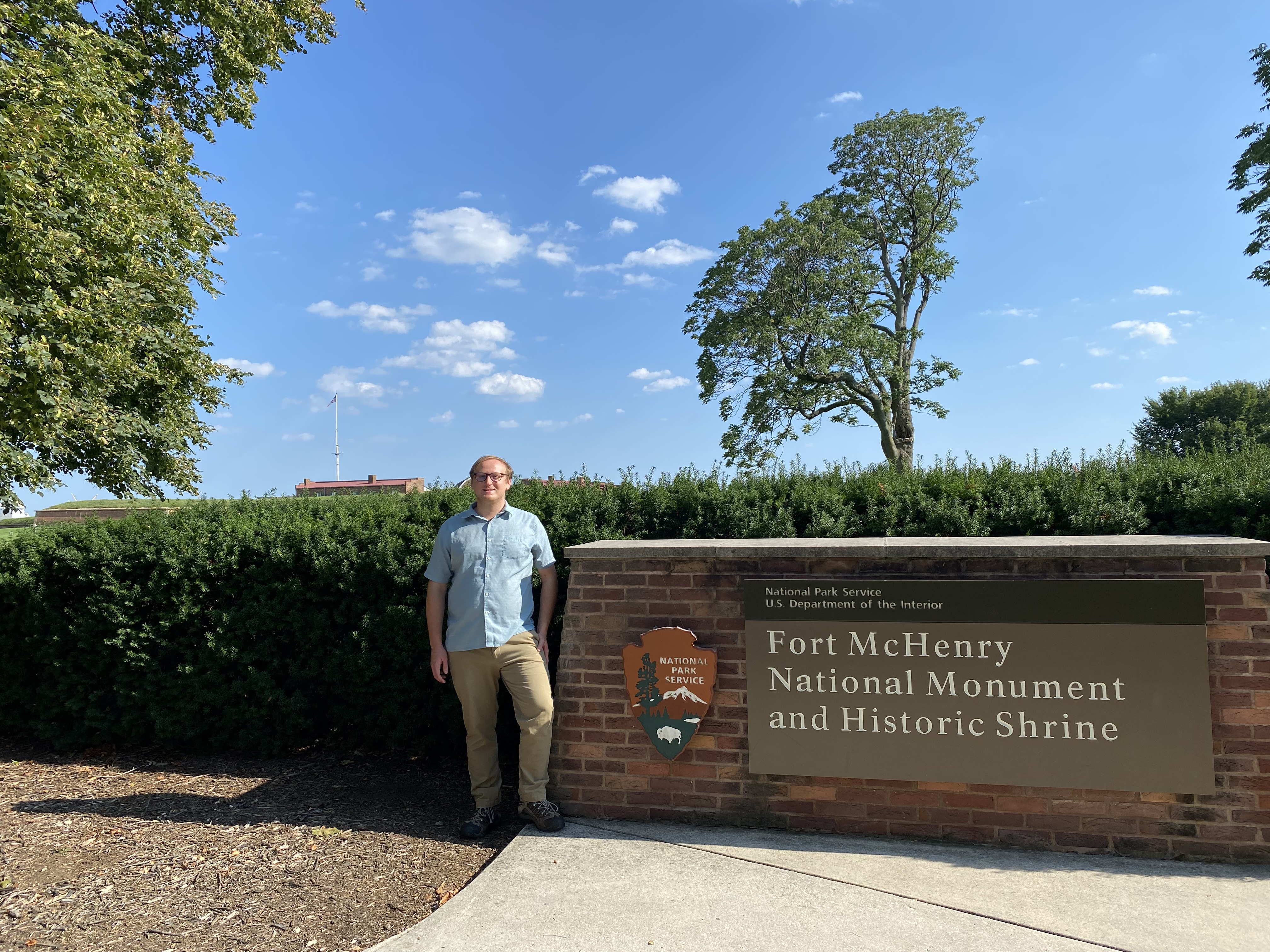News Release
You are viewing ARCHIVED content published online before January 20, 2025.
Please note that this content is NOT UPDATED, and links may not work. For current information,
visit https://www.nps.gov/aboutus/news/index.htm.

NPS
|
Subscribe
|
Looper is a recent graduate of Washington College where he completed a double major in Environmental Studies and Anthropology, as well as a minor in Chesapeake Regional Studies. During his year of service Looper will develop and implement climate change interpretation programs for the Trail and assist in public outreach events.
“My goal is to bridge the gap between science and culture to present concepts in a way that is readily-applicable to the people and places of the Chesapeake Bay,” Looper stated. “By connecting the impacts of climate change to what we eat, the places we live, and the things we love, I aim to make climate change a subject anyone can approach, relate to and develop a genuine care for and understanding of.”
"We are very excited to have Jimmy join our Trail team this year. The research project he is undertaking will help the NPS to learn more about how climate change may impact the Trail and its partner sites. The new content will ultimately be integrated into public programs and highlighted on the Trail’s web site and social media outlets,” said David H. Moore, superintendent of Fort McHenry National Monument and Historic Shrine, Hampton National Historic Site, and the Star-Spangled Banner National Historic Trail.
The Chesapeake Bay Conservation Corps, a program of the Trust, is focused on increasing access and opportunities for young adults (ages 18-25) to pursue green careers and help create the next generation of stewards to manage and protect the environment. The Trust provides environmental and leadership experience through the Corps by placing the members with nonprofit and government agencies throughout the watershed for a one-year appointment. The Corps Members receive on-the-job and leadership experience in the environmental field by managing and supporting projects and programs at their host sites, extensive trainings hosted by the Trust, and other opportunities including grant writing and networking.
Learn more about the 2021-2022 Chesapeake Conservation Corps class.
About the Star-Spangled Banner National Historic Trail
The Star-Spangled Banner National Historic Trail is a 560-mile land and water route that tells the story of the War of 1812 in the Chesapeake Bay region. The trail traces American and British troop movements, introduces visitors to communities affected by the war, and highlights the Chesapeake region’s distinctive landscapes and waterways. It connects historic sites in Maryland, Virginia, and the District of Columbia and commemorates the events leading up to the Battle for Baltimore, the aftermath of which inspired Francis Scott Key to write our national anthem. Congress established the Star-Spangled Banner Trail in 2008 and it is one of 19 national historic trails administered by the National Park Service and one of 30 trails in the National Trails System. The Trail is headquartered at Fort McHenry National Monument and Historic Shrine. For more information, visit www.nps.gov/stsp.
About the Chesapeake Bay Trust
The Chesapeake Bay Trust (www.cbtrust.org) is a nonprofit grant-making organization established by the Maryland General Assembly dedicated to improving the natural resources of the Chesapeake region through environmental education, community engagement, and local watershed restoration. The Trust’s grantees engage hundreds of thousands of individuals annually in projects that have a measurable impact on the waterways and other natural resources of the region. The Trust is supported by the sale of the Maryland Treasure the Chesapeake license plate; donations to the Chesapeake Bay and Endangered Species Fund on the Maryland State income tax form; donations made by hunters, fishers, and boaters in the Maryland online natural resource licensing system; donations from individuals and corporations; and partnerships with private foundations and federal, state, and local governments that enable grant-making watershed-wide. The Trust has received the highest rating from Charity Navigator for over two decades: On average, 90% of the Trust’s expenditures are directed to its restoration and education programs.
Last updated: October 1, 2021
